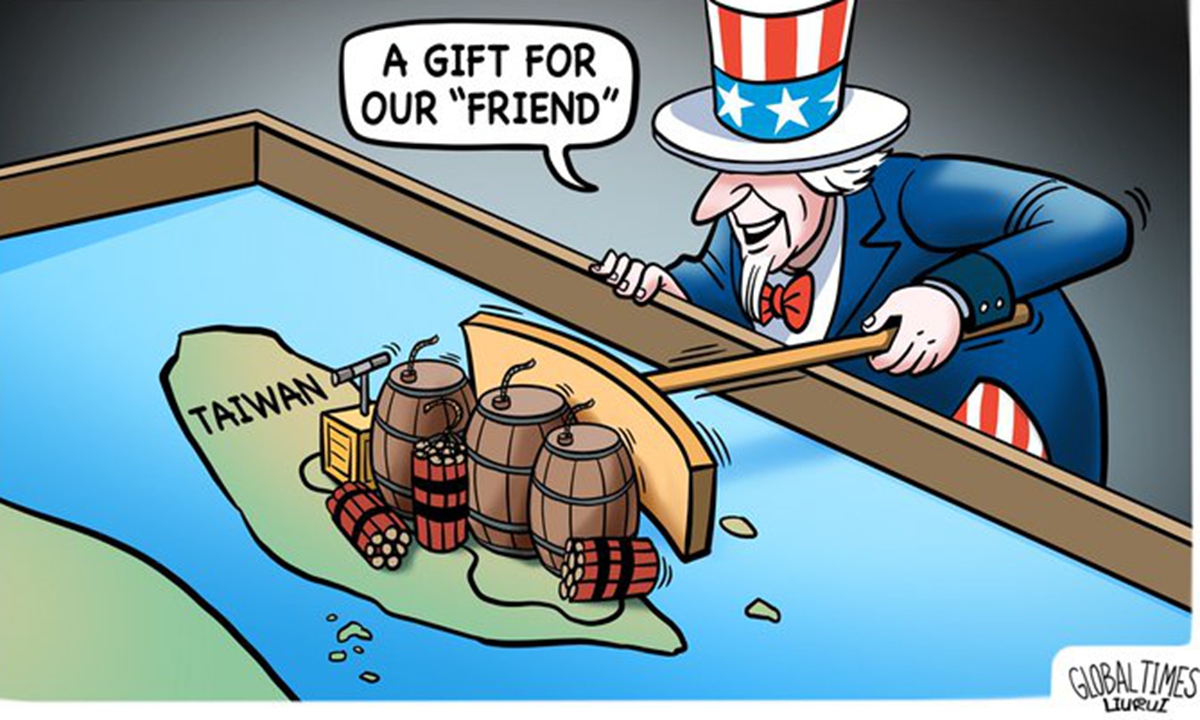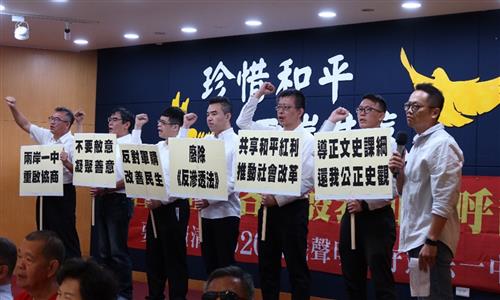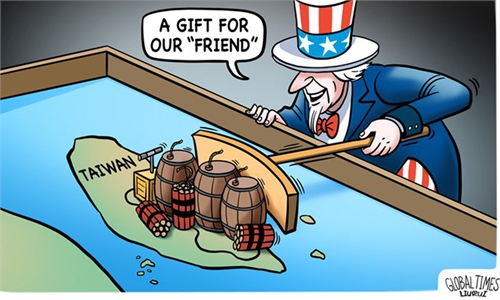
US Taiwan arms sales Illustration: Liu Rui/GT
The latest remarks by former US president Donald Trump, who has officially become the Republican nominee, suggesting that Taiwan island pay the US for its defense, are a slap in the face to the island's Democratic Progressive Party (DPP) authorities. These remarks expose the so-called US commitment to Taiwan as an empty promise, and many people on the island have expressed their anger at being coerced into becoming cannon fodder for the US while potentially being charged for it, observers said.
On Tuesday, Bloomberg Businessweek published an interview with Trump, who said that Taiwan island should pay the US for its defense as it does not give the US anything and that the island "did take about 100 percent" of the American chip business.
In response to media inquiry about Trump's remarks, Chinese Foreign Ministry spokesperson Lin Jian said on Wednesday that "we are opposed to making China an issue in US elections."
Following Trump's remarks, shares in Taiwan Semiconductor Manufacturing Co (TSMC) fell by as much as 3.3 percent on Wednesday. According to media reports, Taiwan politician Cho Jung-tai responded to Trump's remarks by stating that the island was increasing its capability to defend itself and that the island and the US have "good relations despite the lack of formal ties.
Trump's remarks sparked controversy on the island of Taiwan. Although the presidential election in the US has not started, some netizens commented on social media that Trump's words are a slap and a "huge frustration" to the DPP authorities, who have touted the so-called firm support for Taiwan from the US.
"Only fools would believe that Americans would fight for Taiwan… Look at what happened to Afghanistan… the US' infamous record is so obvious to see," wrote one Taiwan netizen.
Trump's remarks have also fueled skepticism about the US' so-called promise to Taiwan island. Many people on the island are also angry, viewing these comments as akin to a gang breaking into someone's home, forcing them to buy expensive items, and charging extortion payments for the so-called protection, Wang Wu-lang, secretary-general of the Cross-Straits Peace Forum, told the Global Times on Wednesday.
During former regional leader Tsai Ing-wen's tenure, people in Taiwan island not only spent an exorbitant amount of money on American weaponry, far beyond market prices, but were also forced to import and purchase American beef or pork containing ractopamine, and more. Moreover, a substantial budget was allocated to invite American politicians to the island. All of these actions are seen as a form of paying the "protection money" or "tribute," Wang said.
However, no matter how much "protection money" Taiwan pays, it cannot change the legal and historical fact that Taiwan is part of China, nor can it stop the inevitable historical trend of China's complete reunification, said Wang.
Some observers noted that at this moment, the DPP authorities and those who seek "Taiwan independence" are feeling pressure not only from the mainland's firm advancement of its anti-independence and pro-reunification strategy, but also from the possibility of Trump's return to power.
Trump's statements have revealed what many American politicians think of Taiwan. Wang noted that the DPP's longstanding claims of a steadfast commitment between Taiwan and the US are empty. The DPP authorities worry that Trump might commodify the Taiwan issue, using it as a bargaining chip to secure the greatest benefits for the US.
The DPP authorities have turned Taiwan into a pawn for the US to contain the Chinese mainland, increasing the danger of turning the island into a battlefield. It is the people on the island who will suffer, and those who seek "Taiwan independence" will also face a dead end, analysts said.


